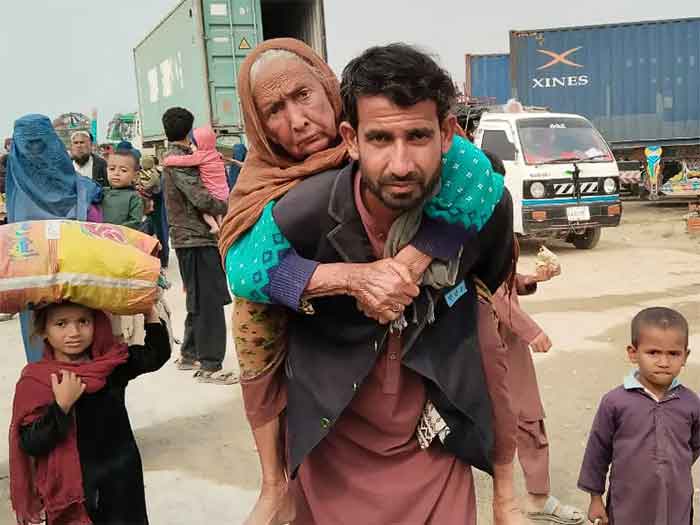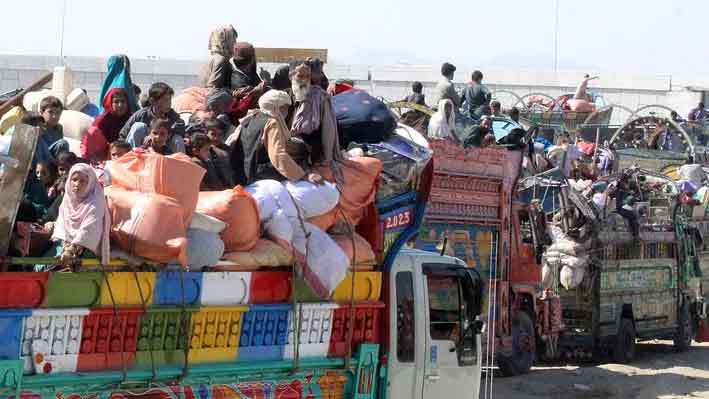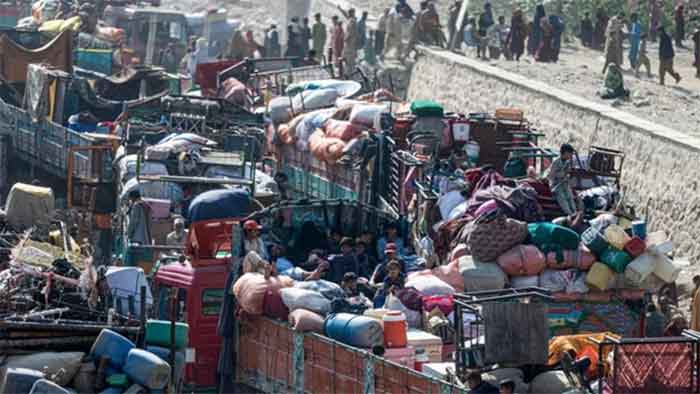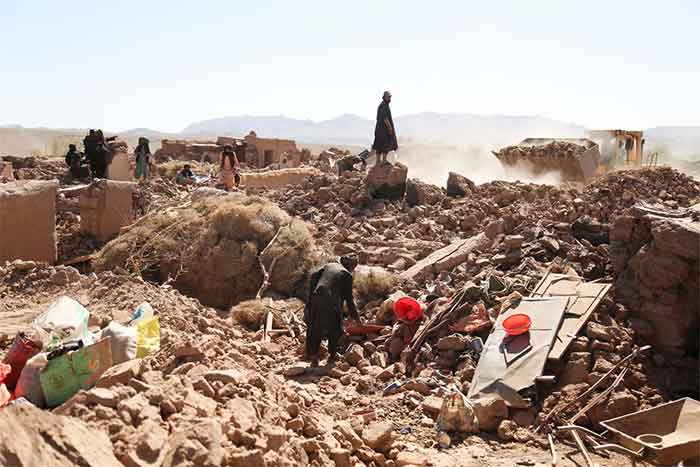
The collapse of US-backed Afghan security forces in the face of a nationwide offensive by the Taliban insurgency has led US military and intelligence officials to warn that the fall of Kabul could come within one month to 90 days, the Washington Post reported Wednesday.
The new estimate represents a change in the already grim projection that the US-backed puppet regime of President Ashraf Ghani could be brought down in six to 12 months after the withdrawal of US and NATO troops, which is to be formally concluded within less than three weeks.
“Everything is moving in the wrong direction,” a “person familiar with the military’s new intelligence assessment,” told the Post .
The report of the new assessment came as the Taliban increased to nine the number of provincial capitals under its control. According to Western estimates, in addition to now holding more than one-quarter of the country’s capitals, the insurgency controls 65 percent of its land mass. Taliban forces are already besieging and occupying areas of major cities, including Kandahar and Lashkar Gah in the south, Ghazni in the east and Herat in the west.
On Wednesday, the insurgency captured Faizabad, the capital of Badakhshan province in the far northeast of the country. The province, which shares Afghanistan’s 57-mile border with China, was the only one that the Taliban failed to conquer when the Islamist movement ruled the country from 1996 to 2001. The fall of Faizabad brings seven of Afghanistan’s nine northern provinces under Taliban control.
In the most important of these capitals, Kunduz, with a population of nearly 375,000, remaining Afghan government forces, which were still holding a fortified base near the airport outside the city, surrendered en masse Wednesday. The surrender deal had been brokered with Afghan army commanders by local elders, who asked them not to resist the Taliban.
At least 2,000 Afghan government troops were at the base, the headquarters of the 217th Pamir Army Corps, one of seven army corps in the country, which was responsible for security in the country’s north. The Taliban captured large stocks of US-supplied weapons and Humvee armored vehicles, as well as a helicopter in the surrender.
The continuing rout of the Afghan national security forces came as US-backed President Ghani made an emergency trip to Mazar-i-Sharif, a city of half a million that is one of the last areas still under government control in the north. Ghani used the trip to promote his government’s desperate policy of banking on the arming of so-called “uprising forces,” comprised of militias loyal to local and regional warlords.
In Mazar-i-Sharif, Ghani held meetings with infamous Uzbek warlord Abdul Rashid Dostum and Tajik warlord Atta Muhammed Noor. While the two men fought each other in the bloody civil war that followed the CIA-orchestrated war in the 1980s against the Moscow-backed government and Soviet forces in Afghanistan, they united in the so-called Northern Alliance that opposed the Taliban after it took power in 1997. Dostum, who carried out some of the worst war crimes during the civil war, was a key US ally following the October 2001 invasion of Afghanistan. Together with US special forces, he organized the massacre of some 2,000 Taliban prisoners, who were suffocated or shot to death after being stuffed into metal shipping containers near Kunduz.
Ghani had previously attempted to sideline figures like Dostum and Noor, both because of their bloody history and the challenge they posed to his government’s authority. Now that he is appealing to them to mobilize forces to defend his regime against the Taliban, it is by no means clear that they can do so.
Both Dostum and Noor have become immensely wealthy off the corruption that is the lifeblood of the Afghan regime. While they had based their authority on their records as “mujaheddin” leaders in the US-backed war against the Soviet-backed government and Soviet troops in the 1980s, they are now seen as collaborators with the US occupation.
The Taliban’s ability to consolidate control over much of the country’s north, which was the center of opposition to their rule in the late 1990s, is a measure of the overwhelming popular hostility to the puppet regime in Kabul and its masters in Washington.
Among the defections to the Islamist insurgency over the past week was that of Asif Azimi, a former senator from Samangan and a major warlord in Jamiat-e-Islami, a predominantly Takij party that was the backbone of the Northern Alliance led by Ahmad Shah Massoud, who was assassinated in 2001.
Explaining his decision to support the Taliban, Azimi told the Wall Street Journal, “We want an Islamic government. This government is a puppet of America. Anyone who stands against it, we will support it.”
The terminal crisis of the puppet government headed by Ghani has found expression in a wholesale reshuffling of the command of its security forces and the sudden resignation Wednesday and flight from the country of its acting Finance Minister Khalid Payenda. He deserted his post as the regime faced the cutoff of fully 50 percent of its revenues as a result of the Taliban seizing control of the majority of the country’s border crossings, taking over the collection of taxes and customs duties. Payenda has also been charged with unreported foreign income, emblematic of the pervasive corruption of the US-backed regime.
Nearly 390,000 Afghans have been internally displaced by the fighting since the beginning of the year, with many of them fleeing to the already seriously overcrowded capital of Kabul. Encampments of these internal refugees have proliferated in parks and city streets, while Kabul’s mosques have been converted into shelters. Refugees have charged that the government has failed to provide them with food and other vital assistance.
The growing crisis in Kabul could lead to social unrest, Qais Mohammadi, a lecturer in economics at Kardan University, told Foreign Policy, pointing to the breakdown of essential services, including electricity, and an inflation rate of between 10 and 20 percent, with gasoline prices doubling since May.
Speaking to reporters in Washington on Tuesday, US President Joe Biden said he did “not regret” his order to withdraw all US troops from Afghanistan by the end of the month.
“We spent over a trillion dollars over 20 years, we trained and equipped with modern equipment over 300,000 Afghan forces, and Afghan leaders have to come together. We lost thousands … of American personnel,” Biden said.
Why the trillion dollars—the training and equipping of 300,000 Afghan troops (a vastly inflated number, given wholesale desertions and commanders’ listing of “ghost soldiers” whose salaries could be pocketed) and the blood spilt by US forces, not to mention the killing of hundreds of thousands of Afghans—have yielded the worst debacle for US imperialism since the fall of Saigon 46 years ago, Biden made no attempt to explain.
Originally published in WSWS.org

















































